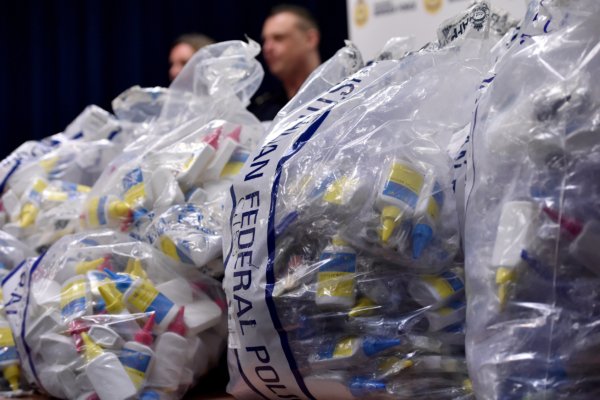Law enforcement officers and United Nations officials have stated that the sparsely populated island nations in the South Pacific are becoming transit points for drug trafficking, prompting countries such as the United States, Japan, and Australia to enhance law enforcement capabilities in the region.
In recent weeks, Fiji authorities have made multiple arrests of individuals in possession of methamphetamine, commonly known as crystal meth. On October 1st, police announced that 12 people were arrested within 48 hours for drug possession. This year, Fiji police have seized 3.5 tons of crystal meth. The country is experiencing a rising rate of HIV infections due to drug injection with shared needles.
Tonga, with a population of only about 110,000, is also seeing a rise in drug trafficking cases. The issue of crystal meth has become so rampant in the region that it is now being compared to an “epidemic” in the Global Organized Crime Index.
Officials state that drugs are being transported by ships from Latin America to the South Pacific islands, then further distributed to Australia and New Zealand. The South Pacific also serves as a crucial route for smuggling drugs from Asia to the United States.
Deputy Secretary of State for the United States, Kurt Campbell, said, “We are concerned that some criminal groups emerging from China and Southeast Asia are beginning to use the Pacific to transit drugs to Latin America and the United States.”
For drug traffickers, the vast maritime areas in the South Pacific and the weak monitoring capabilities of authorities make it an attractive region for trafficking. Only Papua New Guinea, Fiji, and Tonga have navies in the region. In most island nations, the police forces also serve as the navy and coast guard.
The increasing drug trafficking has led to drug addiction issues in communities of Pacific island nations, where major crimes were once rare. This has further strained medical resources and exacerbated shortages of healthcare personnel and equipment in the Pacific island nations.
In Fiji, in July, an attempt was made to smuggle drug-related equipment into the country. Local government preemptively seized the equipment based on intelligence received. However, there are still concerns that the country could become a hub for illegal drug manufacturing.
In August this year, Australia launched the Pacific Policing Initiative to expand cooperation with law enforcement agencies in island nations. The initiative aims to establish up to four police training centers in the Pacific region to enhance law enforcement capabilities. Australia has pledged to provide 400 million Australian dollars (approximately 262 million US dollars) for this initiative over five years.
In September, the United States announced a maritime law enforcement cooperation program to provide training opportunities and strengthen enforcement against illegal maritime activities.
The United States has signed ship-riding agreements with Papua New Guinea and other countries. These agreements allow personnel from partner countries to board US patrol vessels for law enforcement within the partner countries’ exclusive economic zones.
In July this year, the Japan Coast Guard dispatched representatives to Fiji to assist in building the capacities of coast guard agencies in several Pacific island nations. Last year, Japan agreed to provide patrol boats to Fiji under Tokyo’s official security assistance program.
Next year, members of the Quadrilateral Security Dialogue (QUAD) will conduct joint coast guard operations in the Indo-Pacific region. Ships from the United States Coast Guard will carry personnel from QUAD members Japan, Australia, and India, marking the first such joint operation by the organization.
(This article references reports from Nikkei Asia and Agence France-Presse)

